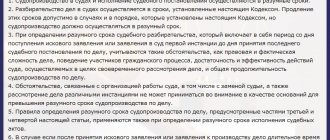ST 159.2 of the Criminal Code of the Russian Federation.
1. Fraud in receiving payments, that is, theft of funds or other property when receiving benefits, compensation, subsidies and other social payments established by laws and other regulatory legal acts, by providing knowingly false and (or) unreliable information, as well as by omission about facts entailing the termination of these payments -
shall be punishable by a fine in the amount of up to one hundred twenty thousand rubles, or in the amount of the wages or other income of the convicted person for a period of up to one year, or by compulsory labor for a term of up to three hundred and sixty hours, or by corrective labor for a term of up to one year, or by restriction of liberty for a term of up to two years, or forced labor for up to two years, or arrest for up to four months.
2. The same act committed by a group of persons by prior conspiracy, -
shall be punishable by a fine in the amount of up to three hundred thousand rubles, or in the amount of the wages or other income of the convicted person for a period of up to two years, or by compulsory labor for a term of up to four hundred eighty hours, or by corrective labor for a term of up to two years, or by forced labor for a term of up to five years. with restriction of freedom for a term of up to one year or without it, or imprisonment for a term of up to four years with restriction of freedom for a term of up to one year or without it.
3. Acts provided for in parts one or two of this article, committed by a person using his official position, as well as on a large scale, -
shall be punishable by a fine in the amount of one hundred thousand to five hundred thousand rubles, or in the amount of the wages or other income of the convicted person for a period of one to three years, or by forced labor for a term of up to five years with or without restriction of freedom for a term of up to two years, or imprisonment for a term of up to six years with a fine in the amount of up to eighty thousand rubles or in the amount of the wages or other income of the convicted person for a period of up to six months or without it and with restriction of freedom for a term of up to one and a half years or without it.
4. Acts provided for in parts one or three of this article, committed by an organized group or on an especially large scale, -
shall be punishable by imprisonment for a term of up to ten years with or without a fine in the amount of up to one million rubles or in the amount of the wages or other income of the convicted person for a period of up to three years and with or without restriction of freedom for a term of up to two years.
What is fraud
In the legislation of the Russian Federation there is an article of the Criminal Code for fraud - 159. The concept of fraud in criminal law is defined as the theft or acquisition of the right to someone else's property through abuse of trust or deception.
Thus, a fraudster is someone who fraudulently obtained someone else's property. Article 159 applies only if the victim is a person with legal capacity. If the property of an incompetent citizen is taken by deception, the crime is classified as theft.
Fraud in the Criminal Code of the Russian Federation is divided into two types:
- active;
- passive.
Active deception is the deliberate communication of deliberately false information, omission of true facts, or actions that deliberately mislead the victim. For example, when a fraudster offers a counterfeit product.
Passive deception is the omission of legally significant circumstances, as a result of which the victim is mistaken regarding the existence of a legal right to transfer property to the fraudster. For example, when the accused is silent about the shortcomings of the transferred goods.
It is worth noting that if deception is not a method of taking possession of property, but only a means to facilitate access to it, the crime is not qualified under Article 159.
Breach of trust refers to the use of a trust relationship between a property owner and a fraudster for personal gain. Trust can be determined both by family or friendly relations, and by the official position of the accused.
Please note that theft of property due to deception is considered fraud in the Criminal Code of the Russian Federation only if the owner himself transferred the item or money to the culprit. Otherwise, the crime is classified under another article.
In the insurance industry
Also, qualified acts of fraud include acts committed in the area of activity of insurance companies. The policyholder contacts the organization providing this type of service by protecting the interests of individuals and legal entities upon the occurrence of a certain type of circumstances, which are called insured events.
Interests are protected through the operation of funds that have insurance value. They are formed as a result of the payment of premiums by the policyholder. Responsibility for fraud occurs if funds are stolen from the fund upon the occurrence of an insured event. Also, the subject in this case may be the amount of compensation to be paid.
In order to qualify the act as an attempt on the crime in question, the perpetrator must commit actions aimed at obtaining insurance compensation. Fraudsters use a method of deception. False documentation is submitted to the insurance company stating that an incident has occurred for which an appropriate payment is provided.
In the case where falsification of documentation is carried out by the same person, it is necessary to evaluate the act based on the totality of the offenses
Please note that this qualification only applies to attempted murder. When committing fraud, an assessment of forgery of documents is not required
This is due to the fact that the disposition of the article provides for the production of forged papers for use in a crime.
https://youtube.com/watch?v=Xoms-a7LvVY%3Ffeature%3Doembed
Composition of the crime and signs of fraud
In accordance with the comments to Art. 159 of the Criminal Code of the Russian Federation, the corpus delicti is as follows:
- object: social relations that develop in the sphere of distribution of material goods;
- subject: a sane citizen who has reached the age of 16;
- objective side: taking possession of someone else’s property through abuse of trust or deception;
- subjective side: direct intent and self-interest.
The subject of fraud may be someone else's property that is not in the legal possession of the accused.
One of the main elements of the forensic characteristics of fraud is the method of committing the crime. The main ways are:
- imaginary conclusion of transactions and agreements or imaginary mediation in their conclusion;
- sale of counterfeit jewelry, money, etc.;
- impersonation of another person;
- creation of fake companies;
- receiving insurance payments in the event of deliberate damage to the insured property, etc.
Qualifying signs of fraud:
- commission of a crime by a group of persons (by prior conspiracy or causing significant damage);
- fraud on an especially large scale;
- a crime committed by a person using his official position.
Theft by fraud is considered complete from the moment when the criminal has not only seized the property, but also has a real opportunity to use it.
Special cases of assassination attempt
Fraud does not have a specific area of commission. It can occur in different areas of social relations.
Attacks may occur in the following areas:
- Insurance.
- Bank loans and lending.
- IT and computer technologies.
- Social payments.
- Internet payment systems and bank cards.
In addition to these general areas, there is also a private area of fraud, when illegal actions to obtain property are directed at a specific person.
Such examples occur in the following situations:
- Division of marital property during divorce.
- Value added tax refund.
- Insurance (in particular, motorist liability insurance).
Attempting fraud in these areas has its own characteristics.
Types of fraud
There are many types of fraud. However, they can be divided into:
- Internet fraud;
- bank card fraud;
- financial fraud;
- telephone fraud;
- banking fraud.
The largest group is financial fraud. This can include:
- insurance fraud;
- product body kit;
- financial Pyramide;
- counting;
- fraud to obtain funds and the state budget (maternity capital, benefits, etc.);
- sale of medical and non-medical items for the treatment of incurable diseases;
- fraud when buying an apartment;
- fraud in concluding transactions and contracts.
Cyber fraud or fraud on the Internet is also quite common now. The most common among them are:
- phishing (when the victim’s personal data is stolen to obtain money);
- job offers;
- using dating services;
- email fraud;
- fake or fraudulent online stores;
- fraud with electronic wallets.
Bank fraud is divided into three types:
- fraud in the lending sector;
- deposit fraud;
- fraud in cash settlement services.
It is worth noting that regardless of the amount of theft, the criminal can be held accountable. The amount of damage caused is taken into account only when imposing punishment. Thus, fraud in the amount of up to 5,000 rubles is regarded as petty fraud. Such an act is subject to only administrative liability. If the damage is more than 5,000 rubles, the crime is qualified under Article 159 of the Criminal Code.
Criminal liability under Art. 159 of the Criminal Code of the Russian Federation
Under Part 1 of Article 159, fraud is punishable by one of the following penalties:
- a fine of up to 120,000 rubles or in the amount of income for a period of up to 1 year;
- compulsory work up to 360 hours;
- correctional labor for up to 1 year;
- forced labor for up to 2 years;
- restriction of freedom for up to 2 years;
- arrest for up to 4 months;
- imprisonment for up to 2 years.
According to Part 2 of Art. 159 for fraud committed by a group of persons by prior conspiracy or causing significant damage faces:
- a fine of up to 300,000 rubles or in the amount of income for a period of up to 2 years;
- compulsory work up to 480 hours;
- correctional labor for up to 2 years;
- forced labor for up to 5 years with restriction of freedom for up to 1 year or without limitation;
- imprisonment for a term of up to 5 years; as an additional measure, restriction of freedom for a term of up to 1 year may be imposed.
A more serious sentence for fraud is threatened under Part 3 of Article 159 for fraud using one’s official position:
- a fine from 100,000 to 500,000 rubles or in the amount of income for a period of 1 to 3 years;
- forced labor for up to 5 years, additional punishment may be applied in the form of restriction of freedom for up to 2 years;
- imprisonment for a period of up to 6 years, as an additional punishment a fine of up to 80,000 rubles or in the amount of income for a period of up to 6 months and restriction of freedom for a period of up to 1.5 years may be imposed.
Punishment for large-scale fraud is also imposed under Part 3.
Fraud on an especially large scale or committed by an organized group of persons or resulting in the deprivation of the victim’s right to housing is punishable by imprisonment for up to 10 years. Under Part 4 of Article 159 of the Criminal Code of the Russian Federation, additional punishment may be applied in the form of a fine in the amount of up to 1 million rubles or in the amount of income for a period of up to 3 years and/or restriction of freedom for a period of up to 2 years.
Responsibility for financial fraud under Part 5 of Art. 159 occurs if the crime is aggravated by failure to fulfill contractual obligations in the business sphere, when this act resulted in significant damage. In this case, the perpetrator faces:
- a fine of up to 300,000 rubles or in the amount of income for a period of up to 2 years;
- compulsory work for up to 480 hours;
- correctional labor for up to 2 years;
- forced labor for up to 5 years, restriction of freedom for up to 1 year may also be applied;
- imprisonment for up to 5 years with restriction of freedom for up to 1 year, or without restriction of freedom.
Please note that damage exceeding 10,000 rubles is considered significant.
If large-scale fraud is associated with failure to fulfill contractual obligations in the business sphere and entails causing significant damage, punishment is threatened under Part 6 of Art. 159:
- a fine from 100,000 to 500,000 rubles or in the amount of income for a period of 1 to 3 years;
- forced labor for up to 5 years with or without restriction of freedom for up to 2 years;
- imprisonment for a term of up to 6 years with a fine of up to 80,000 rubles or in the amount of income for a period of up to 6 months or without a fine and/or with restriction of freedom for a period of up to 1.5 years or without restriction of freedom.
It is worth noting that large-scale fraud is considered if the damage caused is more than 3 million rubles.
If the act provided for in Part 5 of Article 159 was committed on an especially large scale, the offender faces imprisonment for up to 10 years. Additional punishment may also be applied in the form of a fine in the amount of up to 1 million rubles or in the amount of income for a period of up to 3 years and/or restriction of freedom for up to 2 years.
Please note that a particularly large scale of fraud means damage of more than 12 million rubles.
Attempted fraud and complicity
For aiding accomplices in a crime, they also face punishment under Article 159 of the Criminal Code of the Russian Federation “Fraud.” However, how serious the measures will be depends on the role of the accomplice in the crime. As a rule, perpetrators and organizers receive more severe punishment than accomplices.
Attempted fraud is considered an unfinished crime. In this case, if the accused cannot dispose of the property stolen by deception, the crime will only be classified as attempted fraud. The punishment for an uncommitted crime is specified in Article 66 of the Criminal Code of the Russian Federation. Thus, a violator for attempted fraud faces half or three quarters of the term or amount of the maximum punishment of the corresponding part of Article 159 of the Criminal Code of the Russian Federation.
It is possible to avoid punishment for fraud only if the criminal voluntarily and independently stops illegal actions, while having the opportunity to complete it. In this case, the act will not be either fraud or an attempt to commit fraud.
Difference from related crimes
There are a number of features and methods of fraud that distinguish this act from other similar crimes. Thus, theft, robbery and robbery differ in the method of committing the offense.
The difference between theft and fraud is that deception or breach of trust is a way to facilitate the taking of someone else's property. Whereas with fraud, this is the main method of committing a crime. In addition, in the second case, the victim herself transfers her property to the property of the criminal, while the theft is carried out against the will of the victim.
Also, fraudulent actions differ from theft, robbery, robbery and embezzlement by the presence of such an act as acquiring the right to someone else's property. And in the listed types of offense there is only one act - theft.
Embezzlement and embezzlement are different from fraud based on the subject of the crime. Thus, in case of misappropriation and embezzlement, property must be transferred to the perpetrator legally, and the criminal’s selfish goal arises only at the time or after the transfer of property. In the case of fraud, the offender’s selfish goal arises before receiving someone else’s property.
What distinguishes fraud from causing property damage by deception and breach of trust is the type of damage caused. In the event of property damage, the victim suffers losses in the form of lost profits, and in the case of fraud, damage in the form of real material loss.
The difference between robbery is that when it is committed, violence that is dangerous to life and health or the threat of its use is used.
When does one qualify?
In order to recognize the actions of criminals as attempted fraud, it is enough that their actions were suspended at the stage of taking possession of someone else’s property, even before they have the opportunity to dispose of it.
Criminal actions of attackers must meet three criteria::
- The purpose of criminal acts or omissions is to seize the victim’s property.
- Actions or inactions must certainly be intentional and not accidental.
- The crime remained uncommitted due to circumstances beyond the control of the offender.
In situations where a person intentionally renounces a criminal act, there is no corpus delicti and they cannot be regarded as an attempt to commit fraudulent acts.
How to report fraud
To punish a fraudster, you need to contact law enforcement agencies in a timely manner. A fraud charge must be filed as soon as possible after the crime is discovered.
If the offense was committed by an individual, it is necessary to report the fraud to the nearest police department. You can submit an application in person or through the official website of the Ministry of Internal Affairs.
You can also punish online scammers and get your money back by filing a police report.
There is no single application form. It must contain all the details of what happened, information about the victim, information about the accused (if any). A sample statement to the police regarding fraud can be found here.
If fraudulent actions were committed by a legal entity, an application can be submitted:
- to the prosecutor's office;
- to court.
Before submitting an application, you must submit a claim to the company for the return of funds or property. The claim must be addressed to the head of the legal entity. An application to law enforcement authorities should be sent only after receiving a negative response or ignoring the complaint.
A claim against a legal entity is filed:
- to the magistrate's court if the amount of damage is less than 50,000 rubles;
- to the district court if the amount of damage is more than 50,000 rubles.
Please note that you need to correctly write a statement to the police, prosecutor's office or court about fraud, describing in detail the situation that has arisen. Otherwise, no criminal case will be initiated.
It is also very important to prove the fact of fraud. Evidence may include:
- correspondence;
- checks or receipts;
- fake contracts;
- contacts of scammers;
- printouts of telephone conversations;
- information about witnesses (if any).
Statute of limitations for fraud
The statute of limitations for criminal cases of fraud is:
- for part 1 – 2 years from the date of commission of the crime;
- in parts 2 and 5–6 years from the date of commission of the crime;
- in parts 3, 4, 6 and 7 - 10 years from the date of commission of the crime.
When dividing marital property
In the case when the relationship between the spouses deteriorates and they decide on divorce proceedings. The property that they have acquired over the years of family life can be divided at a court hearing.
During a divorce, all property and debt obligations that were formed during the existence of the marriage are divided. If there is no marriage agreement, then the division occurs on the 50/50 principle. Debts can be expressed in credit agreements, mortgages, money borrowed from relatives, friends and other persons.
A spouse who decides to increase the size of his share may commit fraud. It may look like this: he turns to the person from whom he allegedly borrowed money and asks to write a receipt. The document is presented at the court hearing.
The second party will have to pay half of the debt or give up part of the property to offset it. Fraud charges can be brought if a false receipt is submitted to the court. When during the meeting it turns out that the document is forged, the classification will be given as an attempt.
Arbitrage practice
To better understand how to distinguish fraud from other types of theft, we suggest that you familiarize yourself with real-life examples of fraud.
Example No. 1. Citizen V. received a call from an unfamiliar number. The caller introduced himself as a bank employee and said that they were trying to withdraw 10,000 rubles from Citizen V.’s bank card. During the conversation, the caller found out the card details from citizen V., after which 10,000 rubles were debited from the account. During the investigation, it was established that Citizen V. received a call from Citizen A. It was also found that Citizen A. had committed more than 50 similar fraudulent actions. The court sentenced citizen A. to 1 year in prison.
Example No. 2. Citizen D. applied to the bank to obtain a loan. When preparing documents, citizen D. provided the bank employee with a fake passport. During the preparation of documents, the identity of citizen D. was checked, during which it was found that he had provided false documents. The court qualified this crime as attempted fraud and imposed a punishment of imprisonment for a period of 3 months.
Example No. 3. Citizen S. bought a stroller from citizen M. through the marketplace. Citizen M. demanded full advance payment for the goods. Citizen S., not finding citizen M.’s actions fraudulent, sent 17,000 rubles to the account of citizen M. Citizen S. never received the goods, citizen M. did not respond to her messages. Citizen S. contacted the prosecutor's office to combat fraud. The crime was classified under Part 5 of Art. 159 of the Criminal Code of the Russian Federation. The court sentenced citizen M. in the form of a fine in the amount of 180,000 rubles.
It is important to understand!
Fraud lawyers are criminal lawyers who not only know the nuances of applying criminal and criminal procedural legislation, but also know the basics of civil and financial law, and understand the peculiarities of the economic activities of commercial enterprises.
Generalist lawyers, as a rule, do not have the necessary experience in defending entrepreneurs in criminal cases, so they cannot always fully provide qualified legal assistance.
Lawyers at Trial Advocate Law Firm have many years of experience defending managers of commercial enterprises and business owners accused of committing fraud. Lawyers with experience working in investigative agencies stand guard over your interests; therefore, we are well aware of all the features of conducting a preliminary investigation into fraudulent charges. Our lawyers use this knowledge to be “one step ahead” of the prosecution and do the maximum for your defense.










